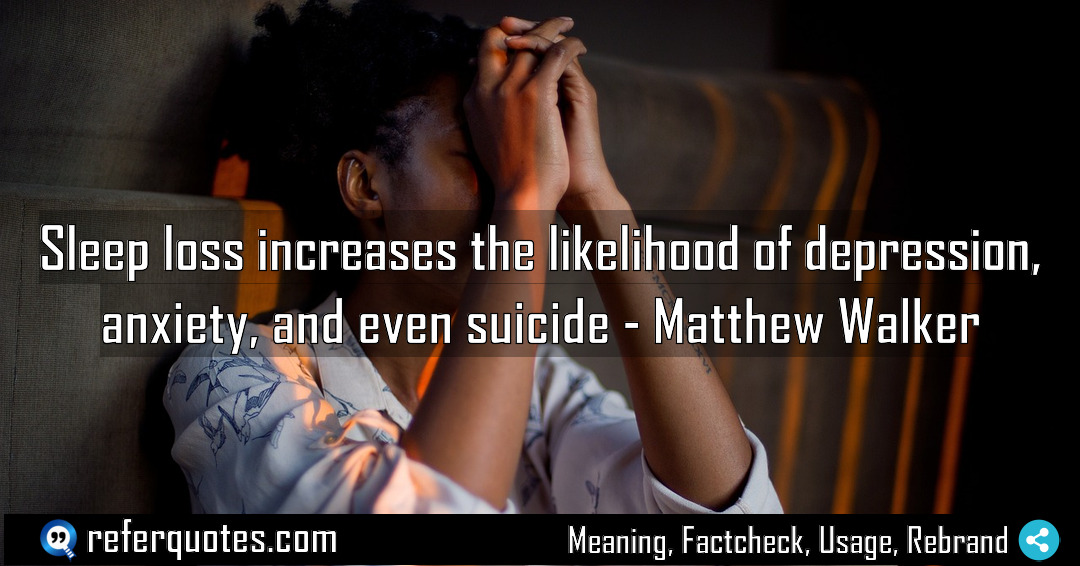Sleep loss increases the likelihood of depression… it’s not just about feeling tired. This quote from Matthew Walker’s book lays out a direct, biological link between our sleep habits and our mental well-being. It’s a warning we should all take seriously.
Share Image Quote:Table of Contents
Meaning
At its core, this quote states that a lack of sleep isn’t just an inconvenience—it’s a direct, measurable risk factor for serious mental health conditions.
Explanation
Look, I’ve seen this play out in the data and in life. It’s not that being tired *makes you sad*. It’s that sleep deprivation actively hijacks the brain’s emotional regulation systems. Your amygdala—the fight-or-flight center—goes into overdrive, while the prefrontal cortex, your rational brake pedal, weakens. The result? You’re emotionally raw, reactive, and your brain starts sliding down a path toward clinical anxiety and depression. It’s a physiological cascade, not just a bad mood.
Quote Summary
| Context | Attributes |
|---|---|
| Original Language | English (3668) |
| Category | Emotion (177) |
| Topics | mental health (13), risk (54), stress (22) |
| Literary Style | clinical (8), factual (11) |
| Emotion / Mood | serious (155), somber (55) |
| Overall Quote Score | 74 (80) |
Origin & Factcheck
This is a direct line from neuroscientist Matthew Walker’s 2017 book, Why We Sleep: Unlocking the Power of Sleep and Dreams. It’s his synthesis of decades of sleep research, not a one-off study. And honestly, the science behind it is robust and widely accepted in the medical community now.
Attribution Summary
| Context | Attributes |
|---|---|
| Author | Matthew Walker (60) |
| Source Type | Book (4032) |
| Source/Book Name | Why We Sleep: Unlocking the Power of Sleep and Dreams (60) |
| Origin Timeperiod | 21st Century (1892) |
| Original Language | English (3668) |
| Authenticity | Verified (4032) |
Author Bio
Dr Matthew Walker researches how sleep shapes memory, learning, emotion, and long-term health. After earning his neuroscience degree and a Ph.D. in neurophysiology in the UK, he taught at Harvard Medical School before joining UC Berkeley as a professor and founding the Center for Human Sleep Science. He wrote the global bestseller Why We Sleep and hosts The Matt Walker Podcast. If you’re starting with the Dr Matthew Walker book list, his work blends rigorous science with everyday advice, making sleep research practical for students, professionals, and families.
| Official Website | X
Where is this quotation located?
| Quotation | Sleep loss increases the likelihood of depression, anxiety, and even suicide |
| Book Details | Publication Year: 2017; ISBN: 9781501144318; Publisher: Scribner; Number of Pages: 368. |
| Where is it? | Chapter 10: Sleep and Mental Health; Page 198, 2017 edition |
